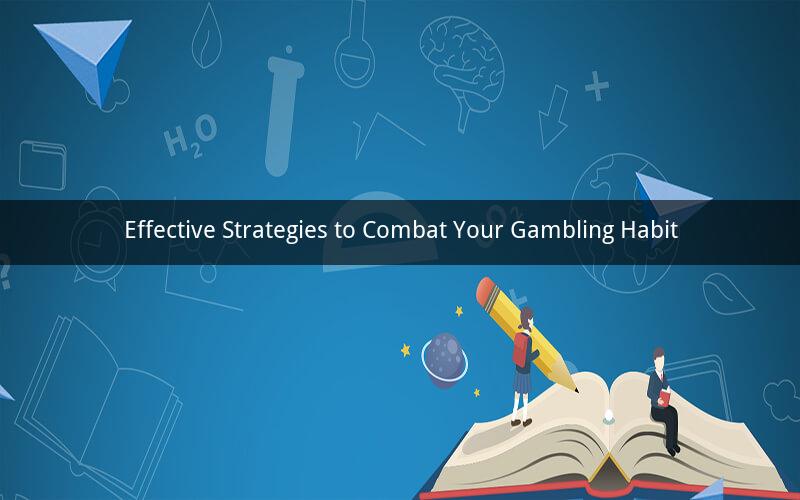
Gambling can be an addictive and harmful habit that can lead to significant financial and personal problems. If you're struggling to control your gambling behavior, you're not alone. This article outlines various strategies to help you overcome your gambling habit and regain control of your life.
1. Identify the underlying causes of your gambling addiction
Understanding the root causes of your gambling addiction is crucial in developing an effective recovery plan. Common triggers include boredom, stress, financial problems, and the thrill of winning. Once you've identified the underlying causes, you can address them more effectively.
2. Create a strong support system
A strong support system can provide you with the encouragement and guidance you need to overcome your gambling addiction. This can include friends, family, or a support group specifically designed for individuals struggling with gambling problems. Sharing your struggles with others who understand can provide comfort and motivation.
3. Set clear goals and boundaries
Establishing clear goals and boundaries is essential in breaking your gambling habit. Set specific, achievable goals, such as stopping for a certain period or limiting your gambling activities to a specific amount of money. Make sure these goals are realistic and tailored to your individual needs.
4. Develop healthier coping mechanisms
Gambling may have served as a coping mechanism for stress, boredom, or other negative emotions. To overcome your addiction, it's crucial to develop healthier ways to deal with these emotions. Engage in activities that provide you with a sense of fulfillment and relaxation, such as exercise, hobbies, or spending time with loved ones.
5. Seek professional help
If you're struggling to overcome your gambling addiction on your own, consider seeking professional help. A therapist or counselor can provide personalized guidance and support tailored to your specific needs. Therapy can also help you address underlying issues contributing to your addiction.
6. Utilize self-help resources
Numerous self-help resources are available to assist you in overcoming your gambling addiction. These resources include books, websites, and apps designed to help individuals manage their gambling habits. Utilize these resources to gain valuable insights and support throughout your recovery journey.
7. Stay accountable
Accountability is a key component in overcoming any addiction. Share your goals and progress with a trusted friend or family member, or consider joining a support group. Staying accountable can help you stay motivated and on track.
8. Avoid triggers and high-risk situations
Identify the situations and environments that trigger your gambling behavior and make a conscious effort to avoid them. This may involve steering clear of casinos, betting websites, or social gatherings where gambling is prevalent. By minimizing exposure to triggers, you can reduce the likelihood of relapse.
9. Monitor your progress
Regularly monitoring your progress is essential in maintaining your newfound control over your gambling habits. Keep a journal to track your progress, noting any setbacks or relapses. Use this information to adjust your recovery plan as needed.
10. Be patient and persistent
Overcoming a gambling addiction is a challenging and often lengthy process. Be patient with yourself and understand that setbacks are a normal part of recovery. Stay persistent and focused on your goals, and remember that your efforts will pay off in the long run.
Questions and Answers:
1. Q: How can I identify the underlying causes of my gambling addiction?
A: Reflect on your gambling habits and consider the emotions, situations, or events that trigger them. Keep a journal to track your thoughts and feelings, and consult with a therapist or counselor if needed.
2. Q: Is it possible to overcome a gambling addiction on my own?
A: While it's possible to overcome a gambling addiction on your own, seeking professional help and joining a support group can provide additional guidance and support.
3. Q: What are some healthy coping mechanisms to replace gambling?
A: Engage in activities that provide you with a sense of fulfillment and relaxation, such as exercise, hobbies, or spending time with loved ones. Experiment with different activities to find what works best for you.
4. Q: How can I stay accountable during my recovery journey?
A: Share your goals and progress with a trusted friend or family member, or consider joining a support group. Staying accountable can help you stay motivated and on track.
5. Q: What should I do if I relapse during my recovery?
A: Relapse is a normal part of recovery. Acknowledge your setback, learn from it, and refocus on your goals. Seek support from your support system and consider adjusting your recovery plan if necessary.